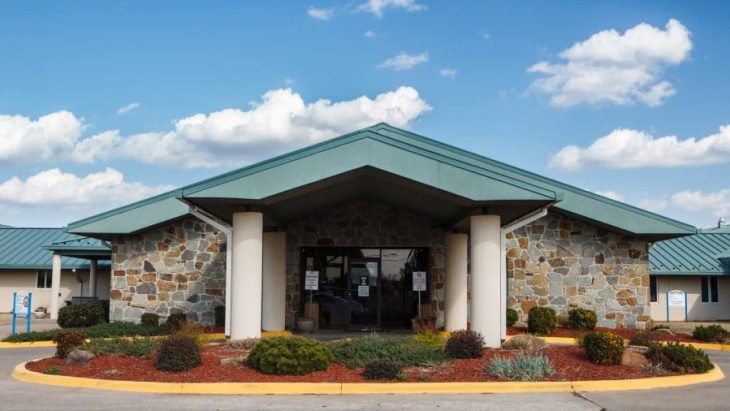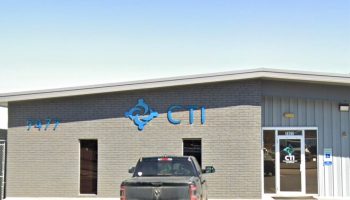Citizen Potawatomi Nation Health Clinic Behavioral Health

About Citizen Potawatomi Nation Health Clinic Behavioral Health
Citizen Potawatomi Nation operates two health clinics, including the clinic in Sawnee, Oklahoma. The clinic offers primary care services for eligible adults, children, and infants. Additionally, they offer treatment for addiction and co-occurring mental health disorders.
If you need a medically monitored detox, the physicians can refer you to a detox center. Please do not try to detox on your own, since detox can be dangerous and sometimes fatal. Services are available to Citizen Potawatomi Nation Tribal members.
They also treat other Native Americans who belong to a federally recognized tribe, and some services are available for the general public. Services are free to eligible Native Americans. For the general public, the organization accepts most major insurance plans, Medicaid and Medicare. There’s also an income based sliding fee scale for the uninsured.
Accessible Services in a Modern Clinic
The clinic is less than a mile from the Citizen Potawatomi Nation Cultural Heritage Center. The center is a tribal landmark that celebrates the Potawatomi culture and their history. Nearby community parks offer recreational opportunities and areas for relaxation and reflection.
The behavioral health clinic is modern and within the Citizen Potawatomi Nation Health Clinic. There are private counseling offices and therapy rooms to ensure confidentiality. You’ll have access to smoking cessation classes led by licensed alcohol and drug counselors.
Integrated and Culturally Informed Treatment
The addiction treatment services are holistic and integrated with Native American heritage. This includes some traditional healing practices with an emphasis on prevention, wellness and education. Treatment is offered in collaboration with social services, medical services and other Citizen Potawatomi Nation providers.
Additional Supportive Services in Shawnee, Oklahoma
Other services include a wellness center for tribal members and their spouses, as well as other Native Americans. You must be 21 or older to use the wellness center.
Clients can benefit from the many other services available for tribal members. These include pharmacy services, a chiropractic clinic, physical therapy treatment and other medical services.
| Levels of Care | Detox Service Setting | Programs | Payment Options | ||
|---|---|---|---|---|---|
|
In outpatient therapy, you’ll attend therapy sessions several times each week while living at home. This is ideal if you have a strong support system and a lower risk of relapse. Outpatient treatment offers flexibility to maintain work, school or family obligations. |
Dual diagnosis programs address substance use disorders and co-occurring mental health conditions simultaneously. This integrated approach to care improves the likelihood of long term recovery and stability by addressing the root causes of addiction. |
||||
|
Outpatient detox gives you access to medically supervised withdrawal services while still allowing you to live at home. You’ll attend a clinic for treatment and monitoring. This flexible option is suitable for those with mild to moderate withdrawal symptoms who have strong support systems. |
|||||
|
Adult programs address the substance use and life challenges specific to adults. Therapists can deliver sessions in individual, group and family settings. Services often include job support and life skills training in a structured environment. |
Alcohol detox programs offer medical support to help individuals withdraw safely from alcohol. Your care team may use medications to ease your symptoms and provide medical monitoring to address complications. |
Men's programs address substance use while also considering the social pressures, family roles and mental health concerns that are specific to men. You’ll learn healthy coping mechanisms as you build emotional resilience and develop communication skills. |
Opioid detox uses medications to ease severe withdrawal symptoms. It also includes medical supervision to help you manage potential complications. These services allow you to stabilize and begin a recovery plan. |
Women's programs offer a safe and supportive space to focus on gender specific issues such as trauma, family roles and mental health conditions. Therapists tailor the sessions to address women's needs and foster empowerment in a healing and nurturing environment. |
Young adult programs are designed for individuals who are transitioning into adulthood. Topics of discussion typically include identity, independence and peer relationships. Providers may also offer life skills training and career support. |
|
Payment Assistance
|
Medicaid
|
Medicare
|
Military Insurance
|
Private Insurance
|
Self Pay
|
Levels of Care
In outpatient therapy, you’ll attend therapy sessions several times each week while living at home. This is ideal if you have a strong support system and a lower risk of relapse. Outpatient treatment offers flexibility to maintain work, school or family obligations.
Dual diagnosis programs address substance use disorders and co-occurring mental health conditions simultaneously. This integrated approach to care improves the likelihood of long term recovery and stability by addressing the root causes of addiction.
Detox Service Setting
Outpatient detox gives you access to medically supervised withdrawal services while still allowing you to live at home. You’ll attend a clinic for treatment and monitoring. This flexible option is suitable for those with mild to moderate withdrawal symptoms who have strong support systems.
Programs
Adult programs address the substance use and life challenges specific to adults. Therapists can deliver sessions in individual, group and family settings. Services often include job support and life skills training in a structured environment.
Alcohol detox programs offer medical support to help individuals withdraw safely from alcohol. Your care team may use medications to ease your symptoms and provide medical monitoring to address complications.
Men's programs address substance use while also considering the social pressures, family roles and mental health concerns that are specific to men. You’ll learn healthy coping mechanisms as you build emotional resilience and develop communication skills.
Opioid detox uses medications to ease severe withdrawal symptoms. It also includes medical supervision to help you manage potential complications. These services allow you to stabilize and begin a recovery plan.
Women's programs offer a safe and supportive space to focus on gender specific issues such as trauma, family roles and mental health conditions. Therapists tailor the sessions to address women's needs and foster empowerment in a healing and nurturing environment.
Young adult programs are designed for individuals who are transitioning into adulthood. Topics of discussion typically include identity, independence and peer relationships. Providers may also offer life skills training and career support.
Contact

Susan is a freelance writer and photographer who loves writing from home with her dog, Jack Bauer, at her feet. Having transcribed patient charts in a mental health and addiction treatment hospital, she’s well informed on the subject of substance use and co-occurring disorder treatment. She’s experienced in content creation and writes her own photography blog and newsletter.

Eric has a passion for content creation, whether it’s writing articles or making YouTube videos. He appreciates the power of storytelling to inform an audience about the information they need to know. In addition to writing, he also spends his time traveling and discovering new restaurants to enjoy a meal.




